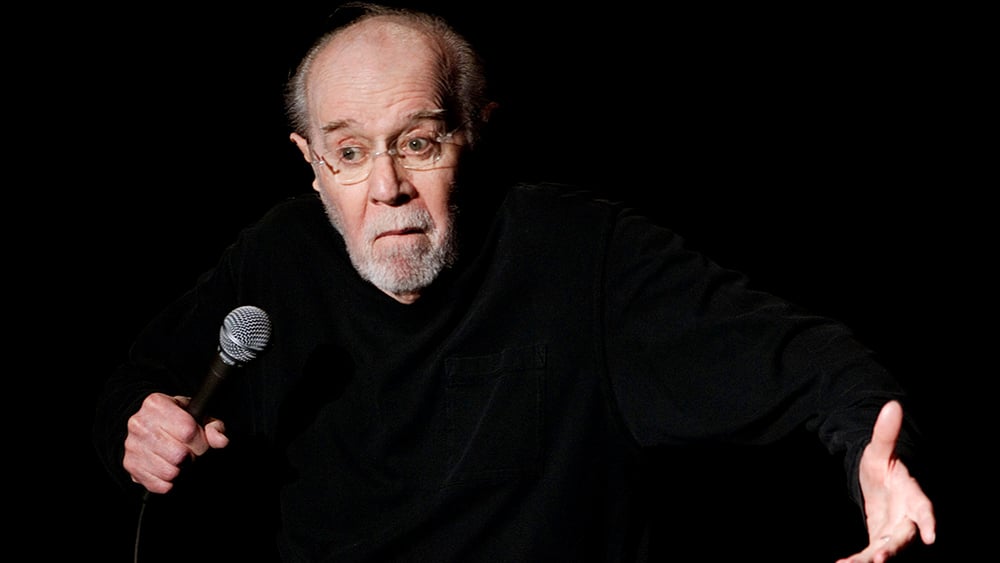George Carlin Estate Files Lawsuit Against Group Behind AI-Generated Stand-Up Special: ‘A Casual Theft of a Great American Artist’s Work’::George Carlin’s estate has filed a lawsuit against the creators behind an AI-generated comedy special featuring a recreation of the comedian’s voice.



The title is “George Carlin: I’m Glad I’m Dead (2024)” and it talks about his own death. Even if someone believes in communication beyond the grave to the extent that they could still mistake it as really being George Carlin, it’s immediately explained as AI in the opening segment of the video.
It really was good material and I liked the alluding that AI was as close to heaven as you can get. Too bad it has been taken down. Locking our culture up is a disservice to everyone who has ever existed.
A sticky note is not a legal disclaimer, nor it has any legal value. It’s like writing a “disclaimer” about privacy on your facebook wall. There are many works that talk about death, resurrection, being undead, etc. Carlin being dead has nothing to do with the title being an obvious infringement.
Have you watched the video? It’s a thousand times more obvious than any legal disclaimer I’ve ever seen. They are not in any way hiding the fact that it is using AI.
Talking about death in the abstract is entirely possible while you’re still alive. Creating material ~two decades after your own death about your death and events that happened since then, less so.
Copyright doesn’t protect names or titles.
The Beatles have just officially released a song with their dead singer’s voice.
No? Go to Spotify and try uploading a track as Michael Jackson, see if copyright “doesn’t protect names or titles.”
Lennon’s vocals were recorded before his death, and thus aren’t about his own death and events occurring after it.
To quote the US Copyright office:
I don’t think Spotify allows individuals, as opposed to music distributors, to upload tracks at all - but more importantly their policies on impersonation are not what defines copyright.
Do you honestly think that context will matter legally, whether the dead “person” is talking/singing about love or their own death? This is nit-picking.
When I say copyright, I mean in a general sence. Infringement of IP might be a better suited phrase, but I assumed the synonymity was implied.
Yes, there is legal relevance to whether a reasonable person would interpret the remarks as really being from George Carlin, thus painting him in a false light, and the whole concept of George Carlin riffing on events occurring after his death (plus the disclaimer preceding the video and in the description) is relevant to determining that.
I don’t see how this tracks. Consider your following comment:
Surely that’s a reference to the character factor of fair use, a defense specifically against copyright infringement? It’s not a term used in trademark law as far as I’m aware for example (and “George Carlin” is not a registered trademark anyway).
Were you just referring to, and telling them to google, the broad layperson definition of “transformative”? In which case I think you’ve misunderstood their comment, because I’m pretty sure at the very least they were referring to the fair use factor.
Exactly my point that it is not clear, since it’s exactly Carlin’s likeness. A person who tunes in at a random moment has no idea that this is what it it stated in the beginning and could 100% assume it’s Carlin.
Techbros use “transformative work” as a catch-all for ‘I moved a pixel; it’s transformative!’. Making a standup comedy show from a person doing standup comedy show is using their exact likeness as a basis is not transformative work. You can also google and copy paste the requirements for work to be considered transformative.
You’re now conflating multiple discussion tracks to various comparisons, rough equivalences amd simplifications. I’m sure quoting random shit from our convo will make your point across.
I’m done, I feel like your not discussing this in good faith and just border-line sealioning.
It is incredibly clear. The fact that it would take a person to pause the video before the first three seconds, skip to a random point, ignore that the topic of the standup is events that occurred since his death and being an AI, fail to read the written notices on-screen and in the description, etc. is evidence of this.
I think you’re still getting wires crossed between different domains of IP law in a way that makes your objection meaningless. Transformative nature comes in as a part of a fair use defense specifically to copyright infringement - whereas elements of a person’s likeness, like their face or voice, are not protected by copyright.